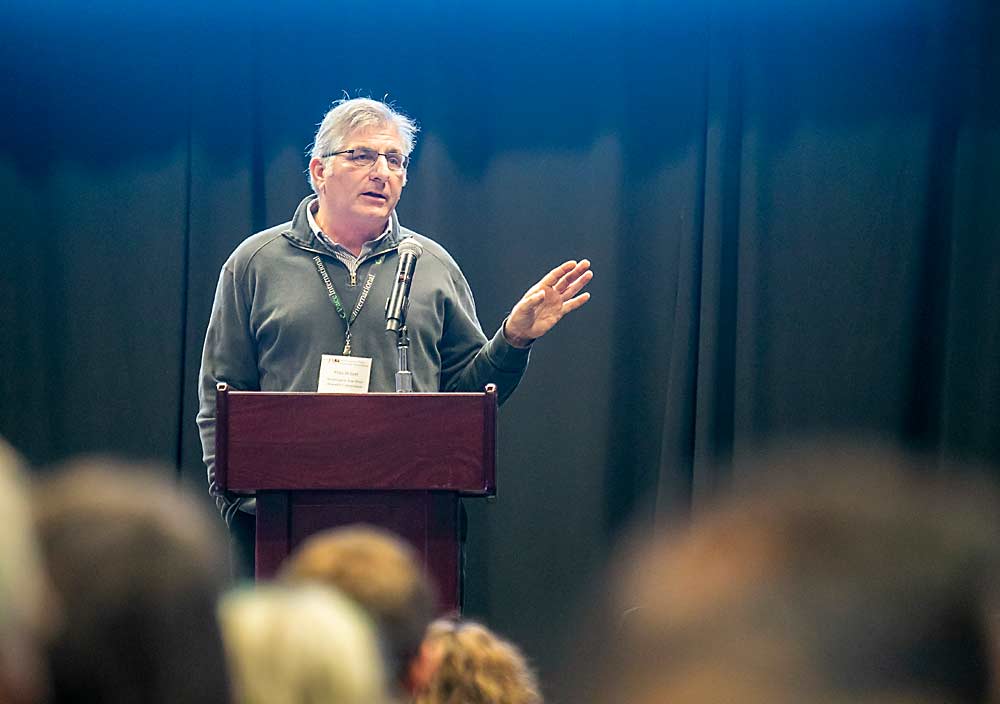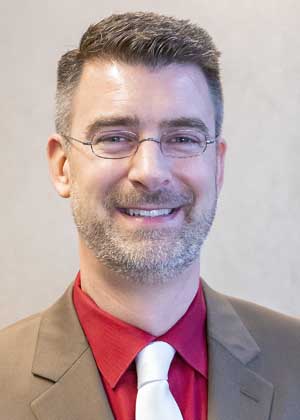
While pondering what to say about current industry challenges at the upcoming 117th Washington State Tree Fruit Association Annual Meeting, Mike Willett thought about past challenges such as codling moth control transitions, Alar, labor marches and oversupply due to the shift away from Red Delicious.
So, the industry veteran asked a host of other longtimers for their memories about how they addressed those challenges of yesteryear.
“I’m essentially trying to crowdsource,” said Willett, the retired manager of the Washington Tree Fruit Research Commission.
Willett will be one of two familiar faces highlighting this year’s WSTFA annual meeting, to be held in-person Dec. 6–8 at the Yakima Convention Center in Yakima, Washington. Last year, like conferences around the world, the annual meeting and accompanying NW Hort Expo, was held virtually.
Willett will deliver the Batjer Memorial Lecture, named for L.P. “Jack” Batjer, the U.S. Department of Agriculture researcher best known for his work with blossom and fruit chemical thinning. Demographer and author Peter Zeihan will be the keynote speaker on Day 1, making his third visit to the Pacific Northwest’s tree fruit community in the past six years.
Before leading the research commission, Willett served as a Washington State University tree fruit extension specialist and a staff member for the Northwest Horticultural Council. He now owns a consulting company called Integrated Plant Health Strategies.
The industry is facing a challenge to fetch prices high enough to make up for the cost of investment. Labor is scarce. Markets are down. Rules are complex. But the industry has faced the need to change before. Take mating disruption as an example, he said. Growers take it for granted now, but it took decades to go from concept to results in the orchards.
“It was no sure thing,” he said.
The first trials in the 1970s by the U.S. Department of Agriculture and Oregon State University involved pheromone-impregnated, chopped hollow fibers dispersed by helicopter. But the temperature-sensitive adhesive needed to help the microtubules stick to the canopy created challenges in ensuring even distribution.
Willett plans to detail some of the processes that helped the industry weather previous storms, and thrive in their aftermath, during his speech.
Overcoming current challenges may not be pretty, he warned. In the past, the responses have left some victims behind, often smaller-scale companies, he said. But the collective intelligence and curiosity of the industry’s farmers, CEOs, researchers and support personnel attracts innovation that will help chart new courses.

Zeihan, who makes global economic predictions based on political turmoil, demographics and geography, also spoke at the 2015 WSTFA Annual Meeting and the Northwest Cherry Growers’ 2018 Cherry Institute, also both held in Yakima.
Organizers of the annual meeting considered new speakers but decided on Zeihan again, figuring his optimistic tone would offset an agenda that by necessity will focus on challenges and problems, said Jordan Matson, chair of the annual meeting and production manager at Matson Fruit of Selah.
“He’s very upbeat and he’s very positive toward the United States in general, and I think he’s very positive about the prospects for the tree fruit industry,” Matson said.
Also, things have changed dramatically since his last visit, Matson said. Apple prices have decreased, the U.S. has a new president and the pandemic has changed pretty much everything.
In a short YouTube video addressed to the tree fruit association, Zeihan promised to go beyond his usual demographic soothsaying to address current economic conditions, namely inflation.
“We are entering one of most extraordinary inflation moments in recent American history,” said the Colorado-based Zeihan on the video.
Zeihan pointed to three factors: a deteriorating U.S. relationship with manufacturing giant China; a surge in consumer demand due to the coronavirus; and a boost in American families relocating to the South, Southwest
and Mountain West, driving up demand for building products.
“You add it up and we, at a minimum, have the biggest inflationary pulse that we have seen since at least the 1970s,” he said. “And if relations with the Chinese really do tank, it’s going to be a lot stronger than that.”
—by Ross Courtney







Leave A Comment